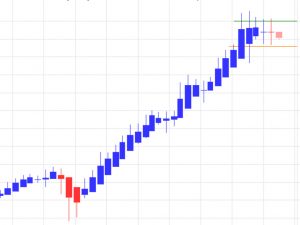Contents
Financial market means the market that creates and exchanges financial assets. When companies issue shares, debentures, etc. it is called creation of financial commercial paper are generally issued at a price assets while their sale-purchase in the financial market is called exchange. A CP is issued in a minimum denomination of Rs. 5 lakh and multiples thereof.


The yield on CP follows that of other money market instruments and is a function of the quick-dated yield curve. CP additionally pays a higher yield than Certificates of Deposit , due to the decrease liquidity of the CP market. Also, they’re negotiable devices as their holder can transfer their ownership to another particular person before their maturity for money. A quick-term unsecured promissory note issued by a finance firm or a relatively giant industrial firm.
Compare by credit needed
While backup lines of credit are needed to obtain a CP rating, they do not raise the rating above the underlying creditworthiness of the issuer. Issuers can significantly increase the rating of their paper, however, by using one of a variety of credit enhancements which lower default risk by arranging for an alternative party to retire the CP. These credit enhancements differ from backup lines of credit in that they provide a guarantee of support which cannot be withdrawn. Some smaller and riskier firms, which normally would find the commercial paper market unreceptive, access the commercial paper market using these enhancements.


Typically, the longer the maturity on a note, the higher the rate of interest the issuing establishment pays. Interest charges will are inclined to fluctuate with market circumstances, but shall be lower than banks’ charges. Commercial paper is a borrowing instrument that banks and different monetary firms make use of to finance short-term investments. Usually banks and large firms use CP to handle working capital or to purchase inventory. Individuals, banking companies, other corporate bodies and unincorporated bodies, non-resident Indians and foreign institutional investors , etc can invest in CPs.
What to do if more than one credit rating has received ?
The organic link of issuance of CP in relation to working capital limit was severed on October 10, 2000 when CP was allowed to be issued as a ‘stand alone’ product. The aggregate amount of CP from an issuer, however, has to be within the limit as approved by its Board of Directors or the quantum indicated by the credit rating agency for the specified rating, whichever is lower. Banks and FIs, however, have the flexibility to fix working capital limits duly taking into account the resource pattern of companies’ financing needs including CPs. Commercial paper is a short term debt instrument issued by companies to raise short term money. Of the various short term investment options available, an interesting debt market investment option is the commercial paper .
This is a floating-price security that has an extended-dated maturity however has a coupon that is re-set on the very short-dated interest rate, either the overnight rate or the seven-day rate. The securities are issued with a put function that entitles the bondholder to place the difficulty again to the borrower at any time, upon giving seven days’ discover. When issuing industrial papers, banks, finance corporations, and firms are promising to pay the face value on the observe maturity date. In reality, this is an unsecured form of credit, as no collateral is required. For this reason, only companies with a fantastic credit rating are able to promote their business papers at an inexpensive value. Commercial Paper is an unsecured and negotiable money market instrument issued in the form of a promissory note issued by companies to raise funds generally for a time period up to one year.


One requirement for exemption is that proceeds from CP issues be used to finance ‘current transactions’, which include the funding of operating expenses, and current assets such as receivables and inventories. Proceeds cannot be used to finance fixed assets, such as plant and equipment, on a permanent basis. The SEC has generally interpreted the current transaction requirements broadly, approving a variety of short-term uses of CP proceeds. Thus CP is sold at a reduction to its maturity worth, and the difference between this maturity worth and the purchase price is the curiosity earned by the investor. The CP day-rely base is 360 days within the US and euro markets, and three hundred and sixty five days within the UK.
Commercial paper, additionally known as CP, is a short-time period debt instrument issued by companies to raise funds generally for a time interval as much as one yr. It is an unsecured money market instrument issued in the form of a promissory note and was launched in India for the primary time in 1990. Only companies with an funding-grade score might problem commercial paper. Corporations and governments sometimes problem tax-exempt business paper, whereas banks, mutual funds, or brokerage firms purchase the tax-exempt industrial paper. Commercial paper is an unsecured promissory note issued by a firm to raise funds for a short period, varying from 90 days to 364 days. It is issued by one firm to other business firms, insurance companies, pension funds and banks.
Whether the Call and put option allowed on CP ?
Demand for commercial paper in the US originated largely from the investors and businesses for assets offering market-determined rates of return, at a time when interest rates paid on bank deposits were regulated. Large holders of US commercial paper include non-financial corporations, life insurance companies as well as private and government pension funds. Some foreign investment and commercial bank holding companies have also become significant dealers. Commercial Paper is an unsecured cash market instrument issued in the type of a promissory note.
Investment firms, companies making public offer, EIG, public companies, community institutions and international organisation of which France is member. Internationally, no stamp duty applicable on CP issuances in USA, UK and France. In USA and UK, there is no limit on the amount of CP that the entities may issue. However, in US, CPs should generally have the rating of A1/P1 for generating investor interest. 24 years old Early Childhood (Pre-Primary School) Teacher Charlie from Cold Lake, has several hobbies and interests including music-keyboard, forex, investment, bitcoin, cryptocurrency and butterfly watching. Is quite excited in particular about touring Durham Castle and Cathedral.
- However, most retail investors who are invested in debt funds are indirectly exposed to CPs.
- The outstanding amount in the French market for corporate issuers (issued in all currencies by domestic and non-domestic issuers) stabilized around EUR 73 billion between the end of June and the end of August 2002.
- CP may be issued to a non-resident Indian on a non-repatriation basis and that those CPs shall not be transferable.
- Investments by related parties as defined in sec 2 of Companies Act, 2013 are not allowed either in the primary or secondary market.
- Issuers who have defaulted on a Commercial paper shall not be allowed to access the CP market for six months from the date of repayment of the defaulted obligation.
CP is an unsecured money market instrument issued in the form of a promissory note. It is normally issued at a discount and redeemed at par with the difference being the implied yield. CP issuers maintain access to funds that can be used to pay off all or some of their maturing CP and other short-term debt. These funds are either in the form of their own cash reserves or lines of credit from banks. Rating agencies require evidence of short-term liquidity and generally would not issue a CP rating without it. The highest-rated issuers can maintain liquidity backup of as little as 50 per cent of CP outstanding, but firms with less than a high A1-P1 rating generally have to maintain 100 per cent backup.
Typically, the longer the maturity on a observe, the upper the rate of interest the issuing company or establishment would have to pay. Corporates which enjoy a high ranking can diversify their sources of shortterm borrowings utilizing CPs. Commercial paper are generally issued at a price ____________________. However, investment by FIIs would be within the limits set for them by Securities and Exchange Board of India from time-to-time. Keep an eye on rating downgrades / defaults of companies issuing CPs if you are directly or indirectly exposed to such CPs. Email and mobile number is mandatory and you must provide the same to your broker for updation in Exchange records.
In USA and France – the two major markets of CP, much of the CPs are issued with overnight maturity. This is possible because settlement of CP takes place on the same day (i.e., at T+0 basis) and stamp duty is not required. In India, with full fledged operationalisation of RTGS, it would be possible to issue CP on T+1 basis. In that case, the minimum maturity period of CP could be reduced to at least 7 days. However, given the stamp duty structure, there would be incentive on the part of issuers to issue in the region of 90-day CP to minimise the cost . Therefore, with complete phasing out of stamp duty and full fledged RTGS system in place, maturity period of CP could be reduced to even 1 day.
Can CP be listed and is it mandatory to list the CP ?
Companies that enjoy high ratings from rating agencies often use CPs to diversify their sources of short-term borrowings. They are typically issued by large banks or corporations to cover short-term receivables https://1investing.in/ and meet short-term financial obligations, such as funding for a new project. Commercial Paper is a money market instrument in India, which was first introduced in 1990 in India as a short-term instrument.
In UK also, there is no restriction but in France, initial maturity ranges from 1 day to upto 1 year. If you are subscribing to an IPO, there is no need to issue a cheque. Please write the Bank account number and sign the IPO application form to authorize your bank to make payment in case of allotment.
Rupee opens lower as investors jitters Fed rate hike ahead of US Fed’s meeting
Limitations of Commercial Paper Only firms which are financially sound and have high credit ratings can raise money through commercial papers. New and moderately rated firms are not in a position to raise funds by this method as these are unsecured. The amount of money that can be raised through commercial paper is limited. Commercial paper is an impersonal method of financing and if a firm is not in a position to redeem its paper due to financial difficulties, extending the maturity of a CP is not possible. Commercial paper, or CP, is a brief-time period debt instrument issued by corporations to lift funds usually for a time interval as much as one 12 months.
The purchaser of a industrial paper buys it at the discounted rate which is equal to the maturity price minus the curiosity CP carries. These commercial papers have a score that’s indicative of their safety and security and displays the boldness of the buyers in these instruments. Commercial paper is an unsecured, short-term debt instrument issued by a company, generally for the financing of accounts receivable, inventories and meeting short-term liabilities. Commercial paper is usually issued at a discount from face value and reflects prevailing market interest rates. The position of banks is to behave as agents for the issuing companies, but they aren’t obligated for the reimbursement of business paper.
